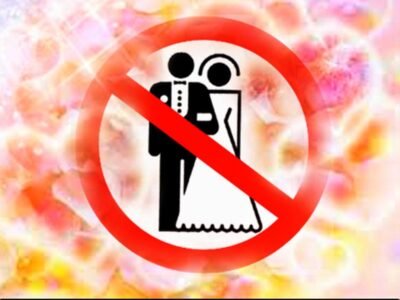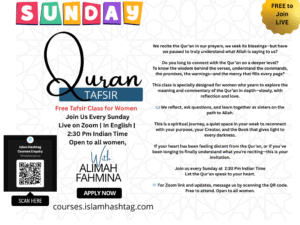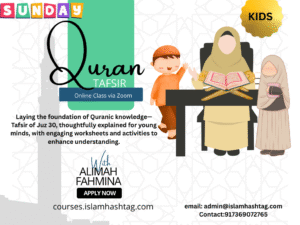Muharramat-Women who are forbidden to Marry in Islam:
Muharramat-Women who are forbidden to Marry in Islam: Generally, prohibition of marriage maybe due to any of the following 8 reasons:
- Qabaarbat (close relations)
- Musaahirat (in-laws)
- Two sisters in one marriage
- Female slave after marrying free woman
- Someone else’s woman
- Razaiyyat – fostership
- Musrikah -nonbeliever
- Mutallaqah who has been given 3 talaqs without halalah.

Muharramat: Who can a man not marry in Islam?
Specifically, it is not lawful for a man to marry the following women:
- mothers (including his real mother (haqeeqi ) and paternal and maternal grandmothers (majaazi) (4:23)
- daughters (including his real daughters (haqeeqi) and his granddaughters (majaazi) (4:23)
- sisters (4:23)
- father’s sisters (including real paternal aunt, half and step paternal aunts ) (4:23)
- mother’s sisters (including maternal aunt half and step maternal aunts) (4:23)
- brother’s daughters (including daughters of half and step brothers) (4:23)
- sister’s daughters (including daughters of half and step sisters) (4:23)
- foster-mothers (4:23))
- foster-sisters) (4:23) (Hadith: “Prohibited on the basis of rada” are those who are prohibited on the basis of lineage”)
- wives’ mothers (mothers-in-laws whether marriage with his wife has been consummated or not)
- step-daughters under his guardianship (born to wives with whom he has consummated marriage but
step-daughters of his wives will not be prohibited if he has not consummated marriage with the
concerned wife); reason is that guardianship is mentioned as norm here and not a condition and
negation of consummation is condition for marriage only). - previous or present wives of his sons proceeding from his loins ( aslaab-including sons and
grandsons; wives of tabanni, meaning adopted sons are not included ) (4:23)
Muharramat in Quran : 4:23
حُرِّمَتْ عَلَيْكُمْ أُمَّهَـٰتُكُمْ وَبَنَاتُكُمْ وَأَخَوَٰتُكُمْ وَعَمَّـٰتُكُمْ وَخَـٰلَـٰتُكُمْ وَبَنَاتُ ٱلْأَخِ وَبَنَاتُ ٱلْأُخْتِ وَأُمَّهَـٰتُكُمُ ٱلَّـٰتِىٓ أَرْضَعْنَكُمْ وَأَخَوَٰتُكُم مِّنَ ٱلرَّضَـٰعَةِ وَأُمَّهَـٰتُ نِسَآئِكُمْ وَرَبَـٰٓئِبُكُمُ ٱلَّـٰتِى فِى حُجُورِكُم مِّن نِّسَآئِكُمُ ٱلَّـٰتِى دَخَلْتُم بِهِنَّ فَإِن لَّمْ تَكُونُوا۟ دَخَلْتُم بِهِنَّ فَلَا جُنَاحَ عَلَيْكُمْ وَحَلَـٰٓئِلُ أَبْنَآئِكُمُ ٱلَّذِينَ مِنْ أَصْلَـٰبِكُمْ وَأَن تَجْمَعُوا۟ بَيْنَ ٱلْأُخْتَيْنِ إِلَّا مَا قَدْ سَلَفَ ۗ إِنَّ ٱللَّهَ كَانَ غَفُورًا رَّحِيمًا
حُرِّمَتْ عَلَيْكُمْ أُمَّهَـٰتُكُمْ : Prohibited for you are your mothers): It means that it is unlawful to marry one’s own mother and the word, “ummah~ukum(“your mothers), includes all grandmothers, paternal or maternal.
وَبَنَاتُكُمْ(and your daughters) means that it is unlawful to marry one’s own real daughter, and the daughter of the daughter, and the daughter of the son. In short, marrying a daughter, grand-daughter, great-granddaughter; maternal grand daughter, great-grand-daughter is all unlawful. As for marrying a step-daughter, from a different husband, whom the wife has brought with her.
وَأَخَوَٰتُكُمْ (and your sisters): Marrying one’s own real sister is unlawful, as well as marrying an ‘allati sister (half-sister from the same father but different mother), and also marrying an akhyafi sister (half-sister from the same mother but different father
وَعَمَّـٰتُكُمْ (and your paternal aunts): Marriage with the real sister of one’s father, his half-sister from their father’s side and his half-sister from their mother’s side is unlawful. It means that one cannot marry any paternal aunt from the three kinds described above.
وَخَـٰلَـٰتُكُمْ (and your maternal aunts): Marriage with a sister of one mother, whether real (akhyaki) or half-sister from their father’s slde(‘allati or half-sister from their mother’s side (akhyafi ) is unlawful
وَبَنَاتُ ٱلْأَخِ (and daughters of brother): It means that marriage with one’s nieces is also unlawful, whether they be haqiqi; ‘allati or akhyafi. Marriage with the daughters of all three types of brothers, real or half,
as given above, is not lawful
وَبَنَاتُ ٱلْأُخْتِ (and daughters of sister): It means that marriage with one’s maternal nieces is also unlawful, whether the sisters be haqiqi or allati or akhyafi. The daughters of such sisters cannot be taken in marriage.
وَأُمَّهَـٰتُكُمُ ٱلَّـٰتِىٓ أَرْضَعْنَكُمْ (and your mothers who suckled you): This refers to women who, even though they are not the real mothers, are treated in SharI’ah like mothers in the sense that marriage with them is as prohibited as with one’s real mother. The quantity or the frequency of feed makes no difference; the said unlawfulness stands established under all eventualities. Muslim jurists refer to this as the unlawfulness through fosterage
وَأَخَوَٰتُكُم مِّنَ ٱلرَّضَـٰعَةِ and your sisters through suckling): It means that marriage with sisters related through the bond of fosterage is also unlawful.
Going in details, it works out that a woman who suckles a boy or girl during the days of suckling becomes their foster-mother, and her husband becomes their foster-father, and the offspring of that woman become his brothers and sisters, and the sisters of that woman become their maternal aunts, and the elder and younger brothers of her husband become the foster-uncles of these children, and the sisters of the husband of that woman become the paternal aunts of these children; and thus, in between all of them, the relationship of fosterage
resulting in prohibition of marriage is established.
وَأُمَّهَـٰتُ نِسَآئِكُمْ (and the mothers of your wives): Also unlawful to husbands are the mothers of their wives. Here too, the word, “ummahat” includes all grandmothers of wives, maternal, paternal, lineal or foster.
وَرَبَـٰٓئِبُكُمُ ٱلَّـٰتِى فِى حُجُورِكُم مِّن نِّسَآئِكُمُ ٱلَّـٰتِى دَخَلْتُم بِهِنَّ (and your step-daughters under your care who are born of your women with whom you have had intercourse): When one marries a woman and sleeps with her after the marriage, the daughter of that woman from another husband becomes unlawful for him, and so do her grand-daughters, both paternal and maternal. Marriage with them is not permissible. But, if the husband has not yet slept with his wife and has divorced her after the contract of marriage, then her daughter or grand-daughter will not be unlawful for him.
وَحَلَـٰٓئِلُ أَبْنَآئِكُمُ ٱلَّذِينَ (and the wives of your sons from your loins): The wife of one’s own son is unlawful, and the universality of ‘son’ includes grandsons, paternal or maternal. So, marriage with their wives shall not be permissible.
مِنْ أَصْلَـٰبِكُمْ from your loins): This particular restriction is used here to exciude he adopted son. Marriage with his wife is lawful. As far as a foster son is concerned, he is governed by the rule which governs the lineal son, therefore, marriage with his wife too is unlawful.
وَأَن تَجْمَعُوا۟ بَيْنَ ٱلْأُخْتَيْنِ and that you combine two sisters in wedlock): Also unlawful is the combining of two sisters in the bond of marriage. They may be real sisters or half sisters from the father’s side or sisters from the mother’s side . They may be sisters by lineage or sisters by fosterage.
This rule covers all of them. However, when one sister has been divorced’it is permissible to marry another sister, but this permissibility becomes effective only after the period of ‘iddah has expired. Marriage during ‘iddah is not permissible
Knowing about the mahram is important. Islam is a beautiful deen and we as a muslim abide by the shariah. If you consider this article to be informative, consider sharing this ilm.
Read : 3 Types of Talaq in Islam
A textbook of healthy Muslim Marriage.
Discover more from Islam Hashtag
Subscribe to get the latest posts sent to your email.





very informatively and crisply covered some important issues pertaining to marriage in Islam. jazakallah.
Today i learned a new thing about islam marriage system.i.e. you cannot marry you brother’s daughters.
When i tell my friends this verse, they laughed on me.
Thank you islam hashtag for guidance. Literally i got this info for the 1st time that you cannnot marry your brother’s daughters.
Jazak Allah